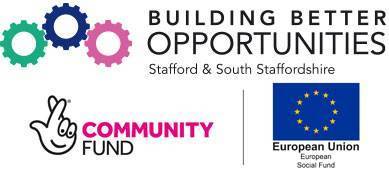What does furlough mean? Employment
At the beginning of the year, the word furlough wasn’t on anyone’s lips. Now, due to the effects of coronavirus on both employees and employers, it’s on everyone’s lips.
To help you navigate and understand what furlough means, and how the government has proposed they will support workers in the UK at this time, we’ve put together this helpful guide.
I’ve been furloughed. What does that mean?
When an employee is furloughed by an employer, it means they are put on leave but kept on their employer’s payroll. The furlough scheme is designed to support businesses, particularly small ones, to stay afloat during the coronavirus pandemic and avoid mass redundancies.
When an organisation furloughs employees they are able to claim 80% of a workers wages from the government. There is a limit to this, however, and employees can only claim back this 80% up to a maximum of £2,500 per month, per person before tax.
If you usually receive commission or bonuses, these won’t be included in the 80% you receive. If your wages tend to fluctuate for whatever reason, your employer should base your salary on what you earned in the same month in the previous tax year, or on your average monthly earnings. This is based on your base salary only. Your wage, however, will still cover pension and National Insurance contributions.
Originally, the furlough scheme was set to run for at least three months from March 1 2020. This was then extended due to the ongoing situation and is now open until 31st March 2021 with a review scheduled for January 2021.
Can I be furloughed?
In theory, almost anyone in employment can be furloughed. As we have seen, the impact of coronavirus has had a profound impact on most industries and most businesses.
That being said, there are some conditions you must meet prior to being furloughed. The first is that you must have been employed by your company since at least 28 February. As long as you are on the payroll, it does not matter if you are employed part-time or full time, or indeed on a zero-hour contract.
If you were made redundant by an employer after 28 February but before the scheme was proposed by the government, your employer can rehire you and furlough you. However, if you were originally hired by an employer after this date, you cannot be furloughed.
If you are off work sick and claiming statutory sick pay, then you will continue to receive this. When you are fit for work again, an employer can then place you on furlough. Further to this, those who are ‘shielding’ are also eligible for furlough.
Can I work if I have been furloughed?
If you have been furloughed, you cannot work for your employer in any capacity.
If you have 2 jobs with different employers, it is perfectly okay for you to continue working for one while you are furloughed by the other. As well as this, you can also seek new work, providing you are not breaching your employment contract.
You can also volunteer if you are able to do so.
Is my job guaranteed?
You can be furloughed for no less than 3 weeks. And you can be furloughed twice. The scheme is set to run until the end of May, although the government have stipulated that this ma be extended if necessary.
When a furlough ends, an employer is not obliged to keep any employee on. So, unfortunately jobs are not guaranteed. That being said, furlough payments cannot be used to subsidise redundancy packages, so if you are eligible for this then you should receive it.
It is hoped that the furlough scheme will minimise the incidences of redundancies, however, this cannot be guaranteed. Nevertheless, for the time being the furlough scheme is very much in place to support employees and business continue to a degree of normalcy until restrictions are lifted and businesses can start running as normal again.
